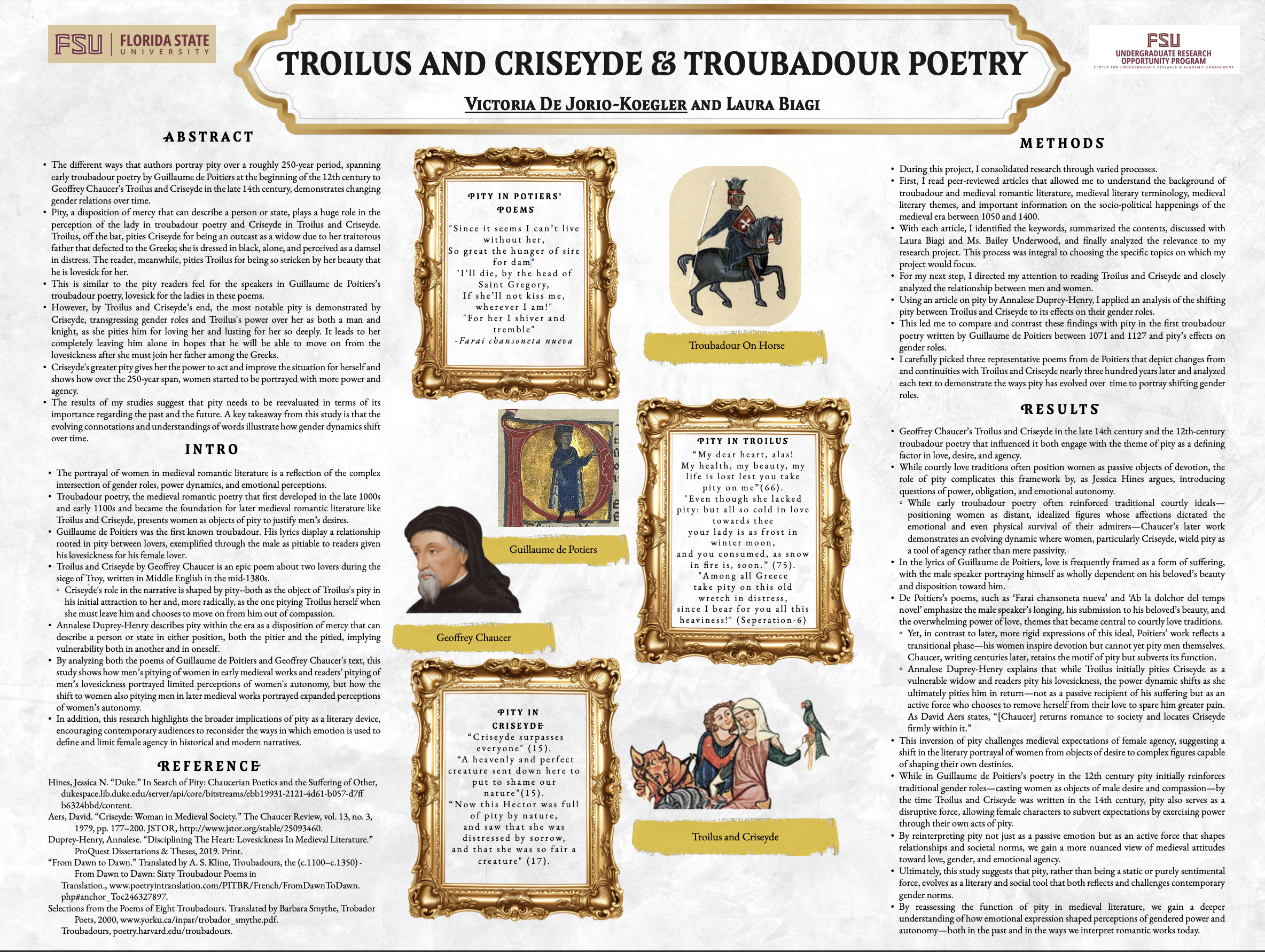Research Symposium
25th annual Undergraduate Research Symposium, April 1, 2025
Victoria De Jorio-Koegler Poster Session 3: 1:45 pm - 2:45 pm/ Poster #253

BIO
My name is Victoria De Jorio-Koegler, and I am from Jacksonville, Florida. I study English and Theatre at Florida State University and have a passion for literature, performance, and cultural analysis. Beyond academics, I enjoy reading, tennis, soccer, dance, and engaging in community service. My current research explores the portrayal of pity in literature over a 250-year span, from early 12th-century troubadour poetry by Guillaume de Poitiers to Geoffrey Chaucer's Troilus and Criseyde in the late 14th century. My study examines how pity—a disposition of mercy that can describe both a person and a state—plays a crucial role in shaping gender dynamics. Her agency in leaving him behind suggests a shift in literary portrayals of women, granting them greater power over their own destinies. This research highlights how the evolving connotations of words like pity reflect broader changes in gender relations and underscores the need to reconsider the role of pity in both historical and contemporary contexts. In the future, I plan to pursue a career in international affairs law, using my background in literature, media, and culture to analyze and navigate global legal and diplomatic challenges.
Troilus and Criseyde & Troubadour Poetry
Authors: Victoria De Jorio-Koegler, Laura BiagiStudent Major: English (Literature, Media, and Culture) and Theatre
Mentor: Laura Biagi
Mentor's Department: English Department Mentor's College: Florida State University Co-Presenters:
Abstract
The different ways that authors portray pity over a roughly 250-year period, spanning early troubadour poetry by Guillaume de Poitiers at the beginning of the 12th century to Geoffrey Chaucer's Troilus and Criseyde in the late 14th century, demonstrates changing gender relations over time. Pity, a disposition of mercy that can describe a person or state, plays a huge role in the perception of the lady in troubadour poetry and Criseyde in Troilus and Criseyde. Troilus, off the bat, pities Criseyde for being an outcast as a widow due to her traitorous father that defected to the Greeks; she is dressed in black, alone, and perceived as a damsel in distress. The reader, meanwhile, pities Troilus for being so stricken by her beauty that he is lovesick for her. This is similar to the pity readers feel for the speakers in Guillaume de Poitiers’s troubadour poetry, lovesick for the ladies in these poems. The most notable pity is demonstrated by Criseyde, transgressing gender roles and Troilus's power over her as both a man and knight, as she pities him for loving her and lusting for her so deeply. Criseyde's greater pity gives her the power to act and improve the situation for herself and shows how over the 250-year span, women started to be portrayed with more power and agency. The results of my studies suggest that pity needs to be reevaluated in terms of its importance regarding the past and the future.
Keywords: Pity, Troubadours, Troilus and Criseyde, Poetry, Gender

